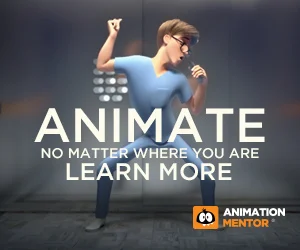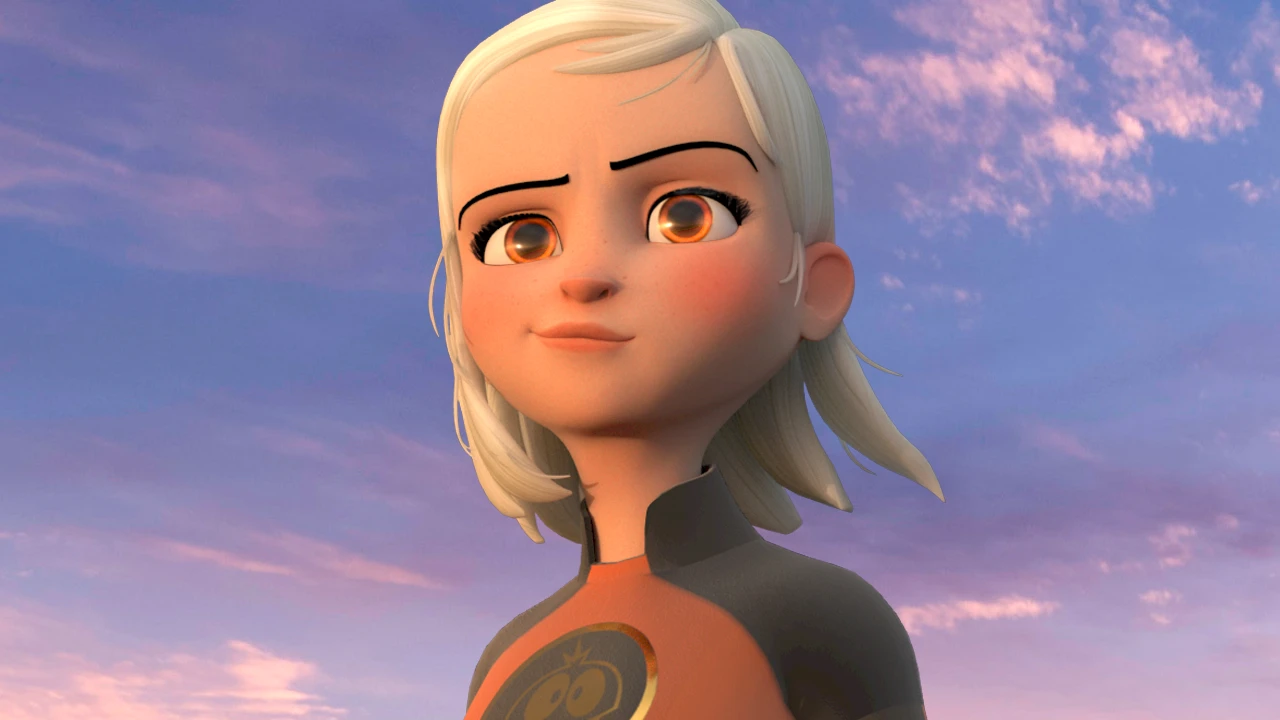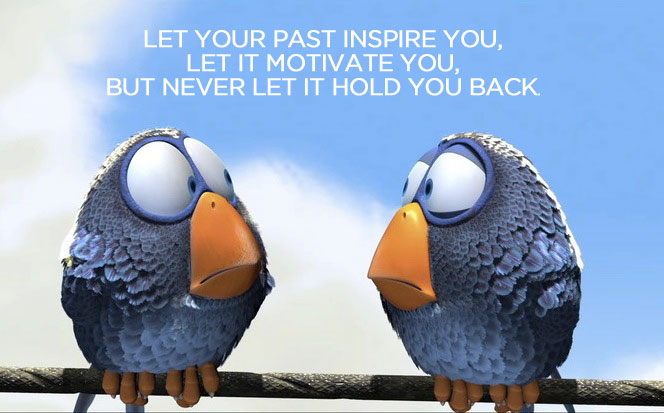
Today, studio owner and beloved mentor Dana Boadway-Masson touches on the topic that every animator struggles with. Throughout her career, Dana has had the great fortune to work alongside some of the most talented creative professionals in the world. But as we all know, creative work is always a struggle, and the ability to innovate comes with a plethora of fears and insecurities needed to overcome. In her post, Dana shares the lessons that have helped her deal with insecurity directly and maintain that sense of innovation in the ever-changing world of animation.
– The Animation Mentor Crew
- THICK SKIN / HANDLE REJECTION
- PERSISTENCE
- ABILITY TO TAKE CONSTRUCTIVE CRITICISM
- PRESENTING YOURSELF IN THE RIGHT WAY
- FLEXIBILITY
- INNOVATION & PROBLEM SOLVING SKILLS
- BALANCE BETWEEN ‘OWNING’ YOUR WORK, AND DOING WHAT IS ASKED OF YOU BY A DIRECTOR OR LEAD
Hey all! I’m here to talk to you guys about confidence, insecurities, and some of the situations where these things come into play most when working in the animation industry.
This is one of the first situations you’re likely to encounter when you’re trying to get your first job(s) and get some experience, but it’s something that will happen throughout your career, even once you’re established. I first learned about this when I was acting, and I attended dozens of auditions, and got rejected from most of them.
The reality is that there are hundreds of animators out there, and many people vying for the same positions. If you gave up after your first couple of rejections, you’d never make it as an animator. You’ll probably send out many applications before you finally get a response. The thing to remember is that there are lots of factors that come into play when it comes to getting that response – the quality of your work is only one of those. You should always be looking to improve the quality of your work and your reel, but you can’t and shouldn’t take rejections or non-responses personally. They could be looking for a particular style of animation for their project that you don’t have on your reel, if you’re not from their area they could be looking for a local resident because of tax laws or a short project duration, they could have others who have personal connections within the studio that have similar reel quality to yours – and the studio will generally go with people who come personally recommended by people they trust. Something I realized once when I went to a group audition, where we all had to do our monologues in front of each other, is that most people are really mediocre at what they do. If you work hard, apply yourself, and keep at it, you can and will become better than most. This is why being passionate about what you do is so important. It keeps you moving in spite of rejection.
Keep putting yourself out there! The more exposure you get, the better the chances that you’ll get that first job that will set you on your path. And once you’re in, you’ll start getting to know people, and networking, and one day YOU will be that person that comes personally recommended, and in turn you’ll be able to recommend others once you’ve built relationships and you’ve got the trust of YOUR studio.
As a mentor of mine from my school days told me, “Take any job you can get in a studio, even if it’s running for coffee. It’s a LOT easier to get where you want to go from INSIDE a studio than from the outside.”
If it takes time to get that first job, use that time to get feedback from peers and keep working on and improving your reel! Yes, you can send updated reels to studios. As they see your work improving and evolving, they will keep you in mind for upcoming projects. Many studios will keep your reels on file over time.
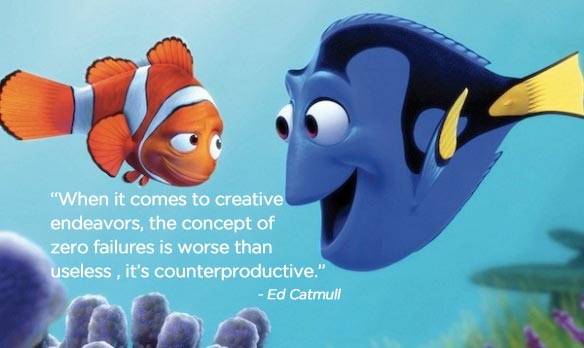
When you’re getting feedback on your reel, no matter who it’s from, you have to remember that this feedback comes from places of various levels of knowledge and experience. You don’t have to feel offended by any of it, and you don’t have to use all of it if you don’t want to, either. Sometimes a person’s individual sense of style will also affect what kind of comments they give you – they can often be very subjective. Also, when you ask someone for comments, they may only give you ideas of things they think should be changed, and they may NOT include positive comments, even if they had positive reactions to your work.
If you’re lucky enough to get feedback from a studio you’ve applied to, and you really want to work at that studio, you should take those suggestions and run with them, and re-submit your work.
Your eye for your own work, and the work of others will change and improve with increased experience. I remember having a GIANT leap in my ability to ‘see’ very subtle quality differences in animation once I worked on my first feature film and spent an hour or so each day in Dailies, watching the director give animators feedback on their shots. I learned a whole new visual language all of a sudden, and it was like a revelation. Sometimes only after you’ve had a revelation like this, can you truly understand what was missing in your work before. You’ll have lots of “ah-HA!” moments throughout your career, over years and years of honing your skills.
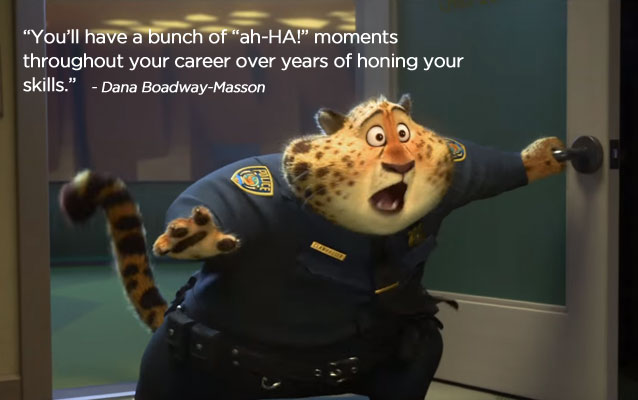
You don’t have to pretend to be something that you’re not, but a studio will generally be looking for people who can work well with their team. Presenting yourself in a friendly and personable way in an interview is important. Your animation skills are really the main key to your success, but over time, if you are a jerk to others in your studio, and disrespectful, your skills won’t get you much farther.
Part of the studio experience and working on a project with others is your ability to communicate well, get along with your colleagues, and play off of each other to get interesting performances from the characters you’re working with. You’ll be spending a LOT of time with these people, so personalities are important when forming a team. I’ve met some of my best friends working in studios! And conversely, I’ve met the occasional person who I really clashed with. The trick is to be able to put forth your best effort to work together and make compromises and act respectful even when you don’t like someone. It will happen on occasion, but for the most part, I’ve really enjoyed my co-workers. There have been some times when I’ve started off not liking or being put off by someone, but after getting to know them better, came to at least respect their position, or even become very good friends with them. So staying open, receptive and friendly in the studio can not only help the production move forward well, but it can open doors to better work relationships, and sometimes even lifelong friendships.
Being able to deal with various kinds of personalities in a studio will also be key down the road when you end up with an opportunity to be a lead or a supervisor. You’ll not only have to get along well with and motivate everyone on your team, but you might have to manage disputes between THEM as well.
This is a transient industry. Chances are pretty good that you won’t be at the same studio for longer than a couple of years, and as little as a couple of weeks or months. There are some situations where you can make a pretty long career stretch at one place, but it’s more the exception than the rule. You’ll be working in different studios, in different cities, in different countries, with different software, for different leads and different directors, on projects with different styles. You’ll need to learn how to adapt in many ways to new situations.
You’ll need to adapt your workflow to meet the needs of different types of productions, too. Television series, for instance, have a much higher animation quota, with less time for attention to detail – compared to feature film, which has a much lower quota, but the level of detail and refinement (and the number of controls on a character!) is very high. One of the GREAT parts of being an animator is how many different kinds of work your skills can be applied to. It keeps things interesting! Right now I’m working on some character animation for a fine art installation – something I’ve never done before! And that’s after 15 years of experience on just about every type of production you can imagine. There will always be something new to try. It’s awesome!
The nature of working with computers and software, even in an artistic field, means you’ll have to solve technical problems, and figure out solutions that will help the production run smoothly. The more you can learn how to deal with your computer on your own, the easier things are. Yes, studios have IT people to help with issues, but it’s great to be able to work your way through a problem quickly on your own, rather than having to wait for someone else to come and help you.
There will also be times when you’ll have a shot you’re working on that’s got a particular challenge – like multiple characters and constraint animation that you have to work out a solution for that will work within the studio pipeline, or coordinating with a rigger to create certain things in a character rig that will make the shot work better. Learning how to deal with these things on your own makes you a valuable asset to a team with a deadline. It also will be a skill that will serve you well if you have aspirations of becoming a lead or a supervisor one day. There will be lots of problem solving that you’ll need to do when you’re casting shots and planning out a sequence for your team.
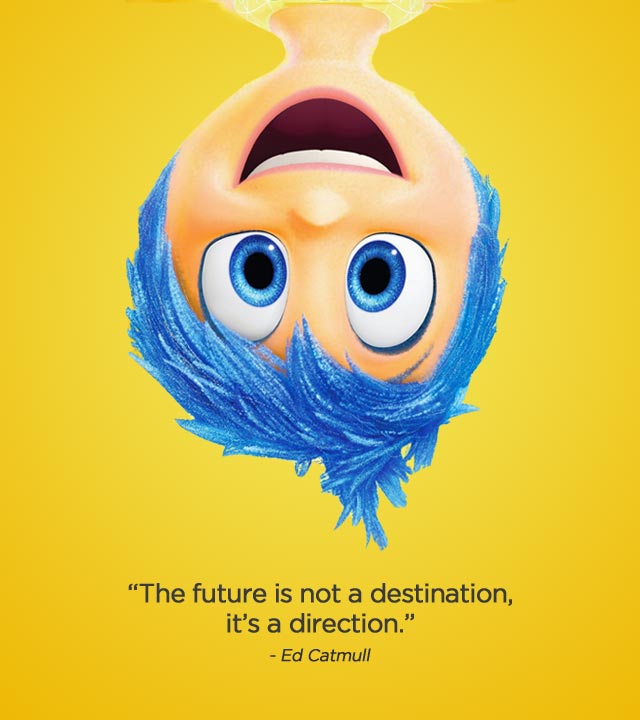
You are an artist. You are invested in your work. You want to have GREAT looking shots in the production you’re working on, and you want to get amazing stuff for your reel over time. You were hired because of your ability to be creative and entertaining. YET… you will get calls on your work that you completely disagree with, and you just KNOW would be better if you did it your own way. Well, when it comes down to it, the director’s vision is the one that everyone on the team needs to work towards, whether you agree with it or not. It can be frustrating at times, but if each animator went off and did their own thing, the project would lack cohesion and consistency. There may be a subjective viewpoint that you don’t share with a director. Sometimes you’ll click with a director and “get” them with no problem at all, and sometimes you’ll need to learn what it is that they’re looking for and how to apply that to your work for that particular project. Yes, there generally is room for you to put your own creative spin on a shot. Most directors do want their animators to contribute their ideas, and explore possibilities for entertainment. But where you are looking at your one shot or sequence of shots in detail, the director has their eye always on the big picture, and your idea for a shot may not always fit the bigger story arc or energy. You have to find that fine line between creativity and following direction, and walk it like a tightrope.
When you have an idea for adding something unexpected to a shot, the thing you need to be good at is presenting that idea. Your communication in your planning and blocking better be 100% clear and concise! If the director doesn’t “get it” at first glance, it won’t be approved for you to move forward with it. If it gets rejected, you have to be okay with moving forward with the direction you’re given. If you continue to work on something that wasn’t approved, it will be considered disrespectful of the director’s valuable time. You need to be able to let it roll off your shoulders, and try again another time, whether you agree with the assessment or not. In the end, when you’re working at a studio, you’re working on someone else’s project, so you have to do a certain amount of adapting to their needs, and checking your ego at the door.
Every aspect that I’ve discussed in this article involves having the guts to put yourself out there, with the knowledge that there could be criticism and/or rejection. The victories can be very sweet, but at times your confidence can take quite a bruising. But if you’re passionate, and persistent, and have a good work ethic, you can overcome the down times and work your way back to a positive place. The more you can take those ‘negative’ events, learn from it and then let it go and move forward, the better off you’ll be. I still go through this all the time, even after a decade and a half!
Failures are, after all, an opportunity to learn. It doesn’t mean you’re finished, it means you’re growing. And the folks who are the very best at what they do have a large string of failures in their past. The difference between those people and the ones who didn’t make it, is they just didn’t let it hold them back. 🙂
– Dana
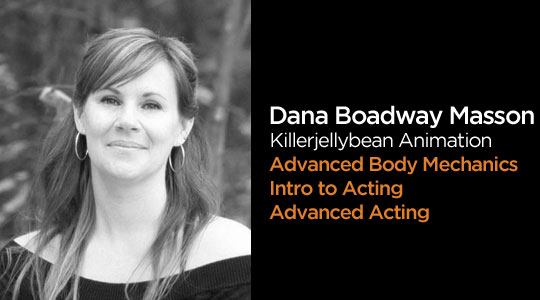
Dana Boadway-Masson is an animation veteran and also a senior mentor at Animation Mentor since 2007. You can see some of her work in Halo 3 (video game), The Little Painter (short), and Flat Frog (video short). She’s also written, produced, and directed her own work. Dana currently works independently from her own small studio, Killerjellybean, and has taught Body Mechanics, Advanced Body Mechanics and Introduction to Acting.
Related Articles:
10 Advanced Acting Performance Tips for Animators – Dana Boadway-Masson
Insecurity – Your Best Friend – Michelle Meeker
4 Ways to Manage Insecurity – Steve Cunningham



